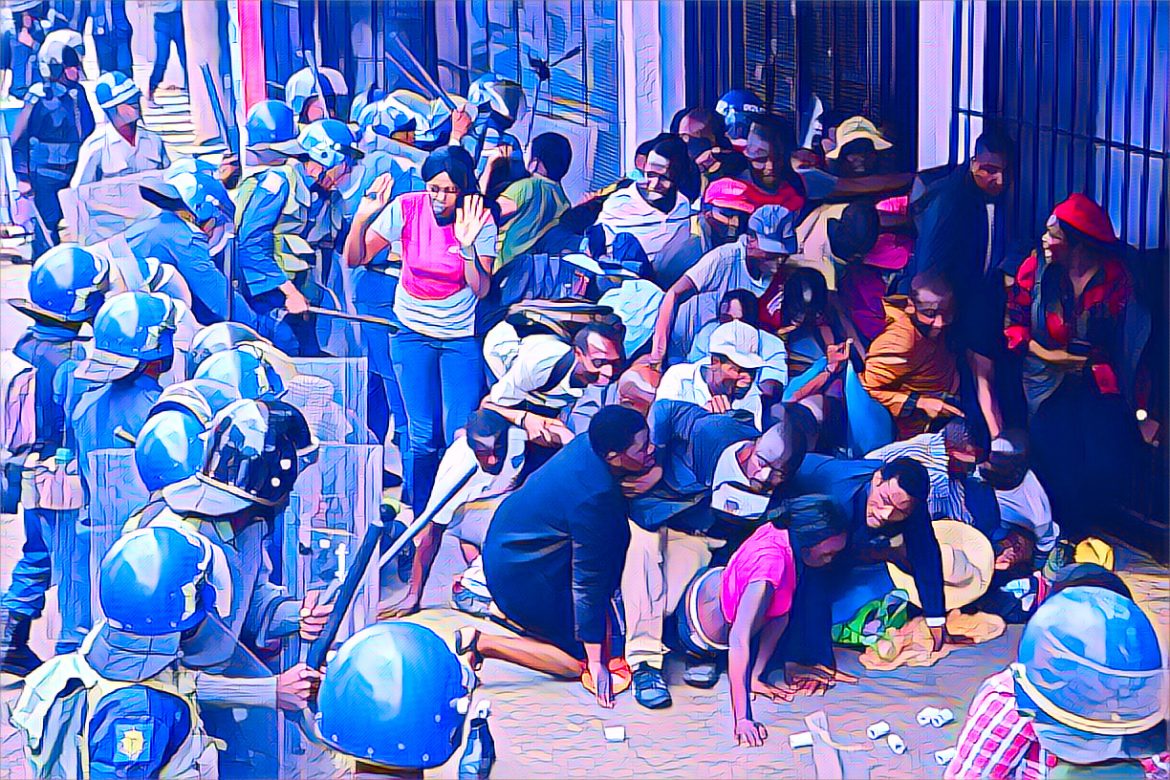KEY POINTS
- Human rights violations affected nearly 2,000 victims in October.
- Politicized food aid coerces support for Zimbabwe’s ruling party.
- Housing demolitions leave families homeless in Harare.
The Zimbabwe Peace Project (ZPP) has raised alarm over a significant rise in human rights violations across the country, with 184 cases documented in October, affecting nearly 2,000 victims.
The organization highlighted patterns of violence, intimidation, and discrimination, particularly linked to political repression and the distribution of food aid.
According to the ZPP report, threats of violence were the most prevalent violation, with 74 cases recorded. Other infractions included nine incidents of assault, 13 cases of unfair food aid distribution, and 12 instances of malicious damage to property. Restrictions on freedoms of assembly and expression were also noted, with 17 and 22 violations, respectively.
“The violations included threats of violence (74), assault (9), unfair distribution of food aid (13), and malicious damage to property (12),” the ZPP report detailed.
“There were 17 cases of restrictions on assembly and association and 22 cases infringing on freedom of expression. Additionally, 19 instances were recorded where victims were denied access to social services.”
Other serious violations included a case of abduction, one unjustified arrest, one instance of torture, two cases of forced displacement, and nine instances of inhuman treatment.
According to a report by Newsday Zimbabwe, women constituted a significant portion of the victims, with 787 female survivors, including three women with disabilities. Male victims totaled 1,204, with two individuals identified as persons with disabilities.
The report pointed to political actors as the primary perpetrators, with 48.47 percent of violations attributed to individuals affiliated with the ruling Zanu PF party. Members of the Zimbabwe Republic Police (ZRP) accounted for 23.01 percent of the documented infractions.
Politicization of aid and housing rights abuses
One of the most concerning trends highlighted in the report was the politicization of food aid. In Buhera South, for example, a village head and a local councilor reportedly threatened a man for criticizing unfair food aid distribution on Change Radio, a platform linked to the opposition Citizens Coalition for Change.
The victim was warned of exclusion from government aid programs, an act the ZPP described as a blatant suppression of constitutionally guaranteed freedoms.
The report also drew attention to housing rights violations, particularly the recent demolition of 30 houses in Ridgeview, Belvedere, Harare.
The action left 30 households homeless and vulnerable, sparking widespread criticism of the City of Harare for failing to uphold the right to adequate housing and protection against arbitrary evictions.
ZPP called for urgent government intervention and urged the Zimbabwe Human Rights Commission to investigate and prosecute those responsible for the violations.
The organization emphasized the need for public officials to adhere to principles of administrative justice and human rights.
Efforts to obtain comments from Zanu PF director of communication Farai Marapira and National Police spokesperson Commissioner Paul Nyathi were unsuccessful, as both were reportedly


